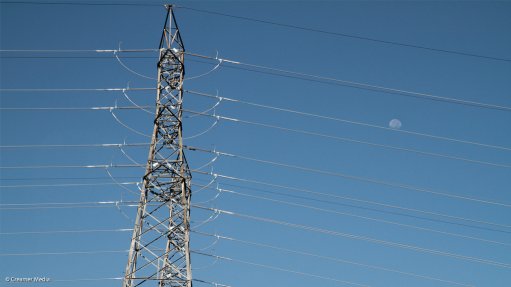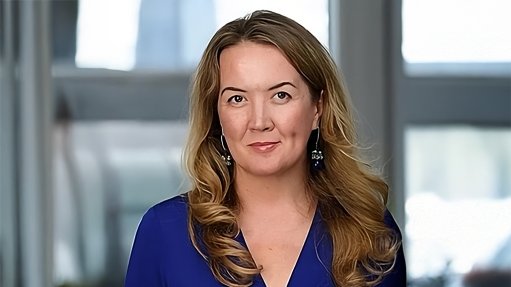Mobile phones help to boost formal savings in low- and middle-income countries
More adults than ever in low- and middle-income countries have bank or other financial accounts, leading to a rise in formal saving, says the World Bank Group in its 'Global Findex 2025' report.
Mobile phone technology played a key role in the surge, with 10% of adults in developing economies using a mobile money account to save, which is a five percentage point increase from 2021.
This momentum in financial inclusion is creating new economic opportunities, the international organisation adds.
The report highlights that nearly 80% of adults worldwide had a financial account in 2024, up from 50% in 2011.
In 2024, 40% of adults in developing economies saved in a financial account, which is a 16 percentage point increase since 2021 and the fastest rise in more than a decade.
Higher personal saving, through banks or other formal institutions, fuels national financial systems, making more funds available for investment, innovation and economic growth, the World Bank Group notes.
In sub-Saharan Africa, formal savings increased by 12 percentage points to 35% of adults.
Across all developing countries, more adults are also using mobile phones or cards to pay merchants. In 2024, 42% of adults in low- and middle-income countries made an in-store or online digital merchant payment, up from 35% in 2021.
Further, three-quarters of adults who receive government payments, and half of wage earners, receive their money into an account, which is a practice that helps reduce theft and ensures that money goes to the right person, the World Bank says in the report.
Additionally, account ownership in sub-Saharan Africa grew to 58% of adults, up from 49% in 2021. Use of mobile money accounts in the region is also at the highest levels in the world.
“Financial inclusion has the potential to improve lives and transform entire economies. Digital finance can convert this potential into reality, but several ingredients need to be in place,” says World Bank Group president Ajay Banga.
The report also highlights that 1.3-billion adults still lack access to financial services. Mobile phones could help close this gap, as an estimated 900-million adults without financial accounts have a mobile phone, including 530-million with smartphones.
Investment in systems that enable instant money transfers, such as UPI in India or PIX in Brazil, could help expand financial use, as could stronger consumer-protection frameworks and efforts to make phones and accounts more secure, the World Bank Group recommends.
“At the World Bank Group, we are helping countries get their people access to new or improved digital identities. We are constructing social protection programmes with digital cash-transfer systems that deliver resources directly to those in need.
“We’re modernising payment systems and helping to remove regulatory roadblocks so that people and businesses have the financing they need to innovate and create jobs,” he says.
The Findex data also show that digital financial services are helping narrow the gender gap in account ownership. Globally, 77% of women have accounts compared with 81% of men. In low- and middle-income countries, women’s account ownership nearly doubled, to 73% in 2024 from 37% in 2011.
“More people than ever have the financial tools to invest in their futures and build economic resilience, including women and others previously left behind. This is real progress.
“The case for investing in inclusive financial systems, digital public infrastructure and connectivity is clear. It’s a proven path to unlocking opportunity for everyone,” says philanthropy organisation and Global Findex supporter Gates Foundation chairperson Bill Gates.
Meanwhile, 86% of adults globally owned a mobile phone, including 68% of adults with a smartphone, according to the Global Findex Digital Connectivity Tracker 2025.
The rising use of mobile phones for digital transactions, however, comes with new risks. Of the four-billion adults in low- and middle-income economies who own a mobile phone, only about half use a password to protect their phone, the report highlights.
Article Enquiry
Email Article
Save Article
Feedback
To advertise email advertising@creamermedia.co.za or click here
Announcements
What's On
Subscribe to improve your user experience...
Option 1 (equivalent of R125 a month):
Receive a weekly copy of Creamer Media's Engineering News & Mining Weekly magazine
(print copy for those in South Africa and e-magazine for those outside of South Africa)
Receive daily email newsletters
Access to full search results
Access archive of magazine back copies
Access to Projects in Progress
Access to ONE Research Report of your choice in PDF format
Option 2 (equivalent of R375 a month):
All benefits from Option 1
PLUS
Access to Creamer Media's Research Channel Africa for ALL Research Reports, in PDF format, on various industrial and mining sectors
including Electricity; Water; Energy Transition; Hydrogen; Roads, Rail and Ports; Coal; Gold; Platinum; Battery Metals; etc.
Already a subscriber?
Forgotten your password?
Receive weekly copy of Creamer Media's Engineering News & Mining Weekly magazine (print copy for those in South Africa and e-magazine for those outside of South Africa)
➕
Recieve daily email newsletters
➕
Access to full search results
➕
Access archive of magazine back copies
➕
Access to Projects in Progress
➕
Access to ONE Research Report of your choice in PDF format
RESEARCH CHANNEL AFRICA
R4500 (equivalent of R375 a month)
SUBSCRIBEAll benefits from Option 1
➕
Access to Creamer Media's Research Channel Africa for ALL Research Reports on various industrial and mining sectors, in PDF format, including on:
Electricity
➕
Water
➕
Energy Transition
➕
Hydrogen
➕
Roads, Rail and Ports
➕
Coal
➕
Gold
➕
Platinum
➕
Battery Metals
➕
etc.
Receive all benefits from Option 1 or Option 2 delivered to numerous people at your company
➕
Multiple User names and Passwords for simultaneous log-ins
➕
Intranet integration access to all in your organisation


















